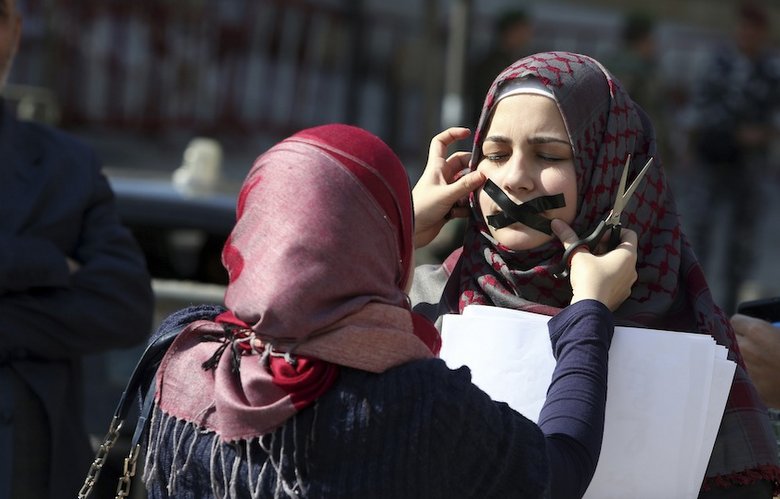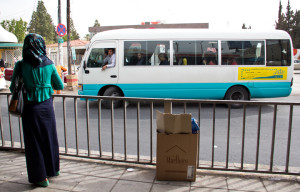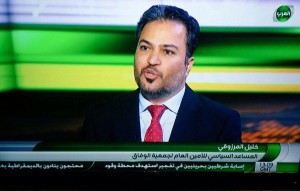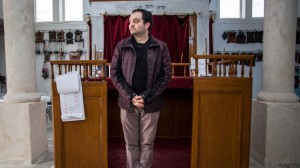
Written By: Naseem Tarawnah
What will the Arab world look like in 2025? Over a hundred people from across the Arab world were in Dubai for a few days to discuss life in the year 2025. It’s part of an initiative created by the British Council and Young Arab Leaders, where delegations have come together to analyze three main scenarios: a hyperlinked world, a sustainable world, and a multi-polar world. Luckily, Lina and I were part of the 6-member Jordanian delegation. It’s not a conference; it’s really a workshop, and I pretty much mean that literally. Young people are leading the discussion and the debate. What’s being discussed is linked to everything from education and health, to conflict in Palestine, Lebanon and Iraq. Engaging with all these people from across the region has been an amazing experience. We often forget how different every Arab country is. Our dialects, our politics, our needs, our situations, our economies, our cultures, our histories. Yet many of the same problems are common across the board, while others are unique. Talking to people from Palestine or Iraq has been particularly interesting as you’re able to get a sense of what war, conflict and occupation are truly like.


Even the members of the delegation differ on a personal level between themselves. From their beliefs to their socioeconomic and educational backgrounds. Our accommodations were more like apartments where every room has 3 or 4 people that have all been mixed, so we spend the night talking to each other, finding out our common problems and solutions, and essentially discovering each others’ worlds.
What’s interesting about the workshop is that at times we remain in country groups and times we’re mixed regionally. Both models produce different results. Moreover, every day we have a keynote speaker specialized in the proposed scenario of the day. The scenarios themselves are based on papers produced by various people (the hyperlinked and sustainable world(s) scenarios were written by Jordan very own, Ahmad and Batir). It was pretty interesting to note how these three scenearios managed to cover a wide variety of relevant topics and there were no restrictions in that regard. From these three scenarios we were able to talk about everything from marriage and unemployment, to economic development, education, socialization, etc.




Keynote speakers are questioned by the youth in the room (99% of those in the room are between 18-25 years old), and the questions are just fascinating, inquisitive, if not demanding at times, inspiring a round of applause from the youthful audience who can relate to it.
Afterwards, groups work together to discuss what’s been mentioned in the scenarios so far. This discussing produces very unique results which are then outputted through various medias. Groups can use TV, radio, print and/or acting to produce their output. Every output is really unique and creative. From futuristic advertisements to an Egyptian news radio broadcast in 2025, where Hossni Mubarak is still in power and little in the Arab world has changed. The outputs reflected everything from cynicism to optimism, and bled creativity. It was an attempt to force us to think outside the box, and once that was accomplished we are able to naturally figure out solutions or address the problems analytically, to say nothing of things we were able to discover about ourselves and each other in just a matter of minutes and hours.



The final day saw us, as national groups, coming together to come up with programs that could address all the issues we had discussed, as part of a British Council-Young Arab Leaders initiative to fund a project for three year or so. In the span of 30 minutes, the ideas that emerged were pretty spectacular, with our own delegation opting for a youth TV station that is broadcasted from outside the Arab world, but is content driven by the youth themselves, in every Arab country. We also recommended a regional youth-driven think tank with polling capabilities as well as a collective advocacy group.
Seeds of leadership were planted throughout the workshop, to say nothing of the bonding and understanding that was nurtured between the various Arab delegations and I think that this is something that needs to be consistently done at this point in time. The first day or so, saw many people in the room focusing on the “idea” of Arab unity, and I think that the concept faded away after the second and third day. There was the awareness that in the long run, Arab unity will depend greatly on our ability as Arab youth to grow into positions with notions of understanding and cooperation, and that can’t be done on a local or national level. It has to be done in rooms where all these people are “forced” to come together and get to know one another.
As for the the proposed initiatives, I do hope many of them see the light of day and are able to be well funded and sustained. They are, by themselves, fairly bold proposals for change in the Arab world.

In The Press:
– Emirates Business
– Gulf News
– More Photos









